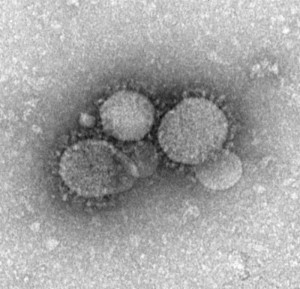Austria has reported it’s first case of Middle East Respiratory Syndrome (MERS) in a female Saudi Arabia citizen, according to a Bundesministerium für Gesundheit report (computer translated).

The patient had traveled to Austria a few days ago and is currently hospitalized at a Vienna hospital.
All possible contact persons are currently being identified and informed about the disease as well as other measures.
Since the beginning of the outbreak in April 2012, more than 800 cases have been reported globally, with the vast majority in Saudi Arabia. Saudi Arabia’s MERS count has reached 753, including 319 deaths. Of the several European countries with confirmed MERS cases, all have been linked to Middle East travel.
Middle East Respiratory Syndrome (MERS) is viral respiratory illness first reported in Saudi Arabia in 2012. It is caused by acoronavirus called MERS-CoV. Most people who have been confirmed to have MERS-CoV infection developed severe acute respiratory illness. They had fever, cough, and shortness of breath. About 30% of people confirmed to have MERS-CoV infection have died.
This virus has spread from ill people to others through close contact, such as caring for or living with an infected person. However, there is no evidence of sustained spreading in community settings.
The Centers for Disease Control and Prevention says, although not with certainty, MERS-CoV likely came from an animal source. In addition to humans, MERS-CoV has been found in camels in Qatar, Oman, Egypt and Saudi Arabia, and a bat in Saudi Arabia. Camels in several other countries have also tested positive for antibodies to MERS-CoV, indicating that the camels were previously infected with MERS-CoV or a closely related virus. It may be that people became infected after contact with camels, although more information is needed to figure out the possible role that camels, bats, and other animals may play in the transmission of MERS-CoV.
For more infectious disease news and information, visit and “like” the Infectious Disease News Facebook page


One thought on “Austria reports first MERS case in Saudi citizen”